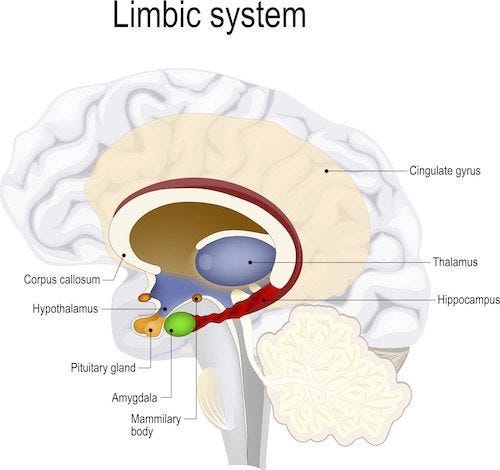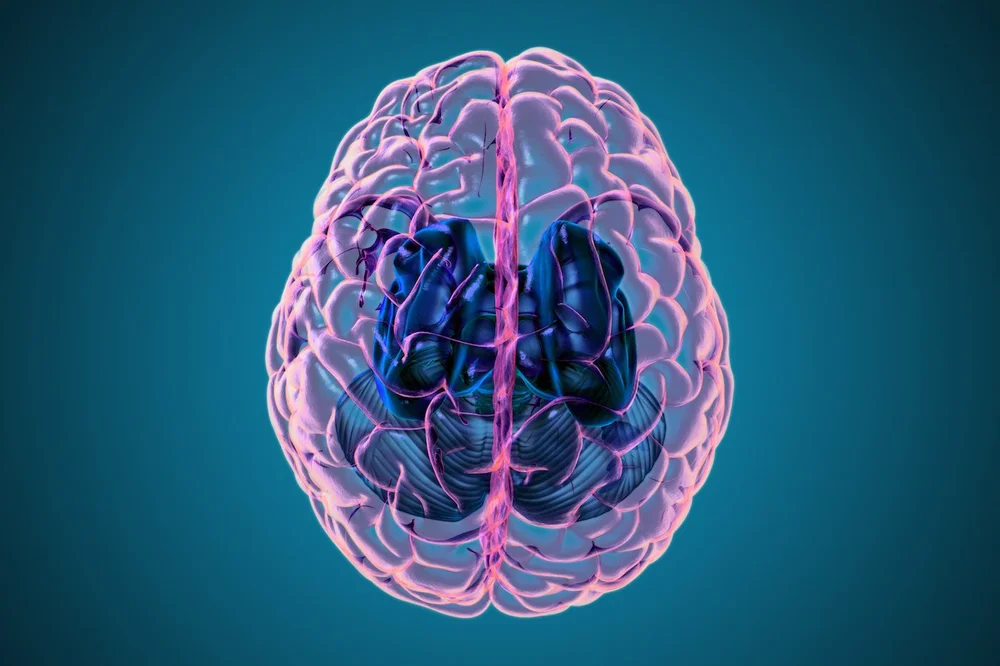Brain Structures & Functions: What is the Hippocampus?
What is the Hippocampus?
Most of us know our body’s anatomy – the major organs, bones, and perhaps even a few muscles.
However, when it comes to brain anatomy, there’s a lot we all can learn.
If you want to take good care of your brain, gaining a basic understanding of its structures and the types of functions they manage and control is a great place to start.
For memory, a top brain health concern, the hippocampus plays a key role.
Here’s what you need to know about this funny sounding brain structure.
The Hippocampus and Memory

About 1.5 to 2 inches in length, the hippocampus is embedded deep within the temporal lobe of your brain. It plays a vital role in regulating learning, memory encoding, memory consolidation, and spatial navigation.
In basic terms, the hippocampus is where your short-term memories and new learning are turned into long-term memories that are then stored elsewhere in the brain. The hippocampus helps us to process and retrieve two kinds of memory: declarative memories and spatial relationships. Declarative memories are both episodic (memories created from things you experience personally) and semantic (facts and information).
Spatial relationship memories involve pathways or routes. It appears that neurons in the hippocampus encode information about our environment in such a way that they create a mind map of our surroundings. Interestingly, brain scans have shown that some taxi drivers have an enlarged hippocampus compared to non-taxi drivers, due to the spatial memories required to do their job!
The Hippocampus Is Vulnerable
The hippocampus is a powerful yet sensitive part of the brain, making it susceptible to damage. Several health conditions and lifestyle choices can adversely affect your hippocampus, and, therefore, your memory function. Here are just a few common examples:
Aging
Our total brain volume begins to shrink when we’re in our 30s or 40s and accelerates around age 60. The hippocampus is one area that shows some of the most significant loss that worsens in advanced age.
Stress
Long-term exposure to high levels of stress is associated with the loss of hippocampal volume, according to one study. In a healthy brain, 700 new nerve cells are created every day in the hippocampus, which is critical to forming memories. Extreme stress can disrupt the process of new cell growth, so you don’t make as many new nerve cells as you should.
Neurodegenerative Issues
The hippocampus is one of the first areas to be affected with the onset of memory-related neurodegenerative issues. When it begins shrinking in size, a person begins to lose their short-term memory.
They also can lose the ability to navigate from one place to another. 50 to 75 percent of people who suffer from neurological issues that cause abnormal brain activity show damage to the hippocampus.
Low Mood
When someone experiences severe low mood, their hippocampus loses volume.
Overweight
Additionally, research shows that being severely overweight may cause memory loss and damage to the hippocampus.
Lack of Sleep
Even brief periods of sleeplessness can have long-lasting consequences on the hippocampus such as impaired memory consolidation.
High Blood Sugar
Consuming too much sugar can adversely affect your hippocampus function too, negatively impacting your memory recall.
Marijuana Use
Research examining brain scans show low blood flow in the hippocampus of marijuana users, which adversely affects memory.
Head Injury
In the weeks to months following a serious head injury, the hippocampus can undergo atrophy and exhibit deficits in long-term potentiation, which can compromise learning.
5 Ways to Strengthen and Protect Your Hippocampus
Research shows that you can strengthen your hippocampus, minimize atrophy, and help prevent memory loss with brain healthy dietary and lifestyle choices.
Doing these can help your hippocampus work optimally!
1. Move Your Body
Studies show that aerobic exercise training is effective at reversing hippocampal volume loss in late adulthood, which is accompanied by improved memory function. You don’t have to run marathons; just start with some low-impact exercises.
2. Reduce Stress
Engage in activities that dial down the stress response and activate your parasympathetic nervous system, which helps the body move out of a stress state. Walks in nature, meditation, yoga, or any activity that allows you to be calm can go a long way in countering stress’ damaging effects. In fact, one study showed that regular yoga practice brought about increased volume in the hippocampus.
3. Diet
Clean up your diet by eliminating processed foods and refined sugar, and instead eat lots of brain healthy foods such as leafy greens and other wholesome foods that stabilize blood sugar levels and increase blood flow to the brain. Also, be sure to get plenty of omega-3 rich fish, and antioxidant-rich foods, such as blueberries. Neurons love omega-3s, and the antioxidants protect your hippocampus from oxidative stress.
4. Quality Sleep
Quality sleep does wonders for you brain and body. It’s necessary for some of the memory work the hippocampus does.
5. New Learning
Keep your hippocampus strong and responsive by stretching your mental capacity with brain games, new routes on your commute, and learning new things. These help to build neurons, which is good for the hippocampus.
As you can see, there are many things you can do to strengthen your hippocampus and ensure healthy memory function. Pick one and start improving your memory today!
At BrainMD, we’re dedicated to providing the highest purity nutrients to improve your physical health and overall well-being. For more information about our full list of brain healthy supplements, please visit us at BrainMD.
- Here Are Some of the Best Tension Release Exercises to Help You Feel Your Best! - April 17, 2024
- Foodscaping: How to Grow Healthy Foods In Your Own Garden! - April 12, 2024
- Eat Your Fruits and Veggies (Don’t Drink Them) - March 29, 2024




Good article. Thank you for the information.